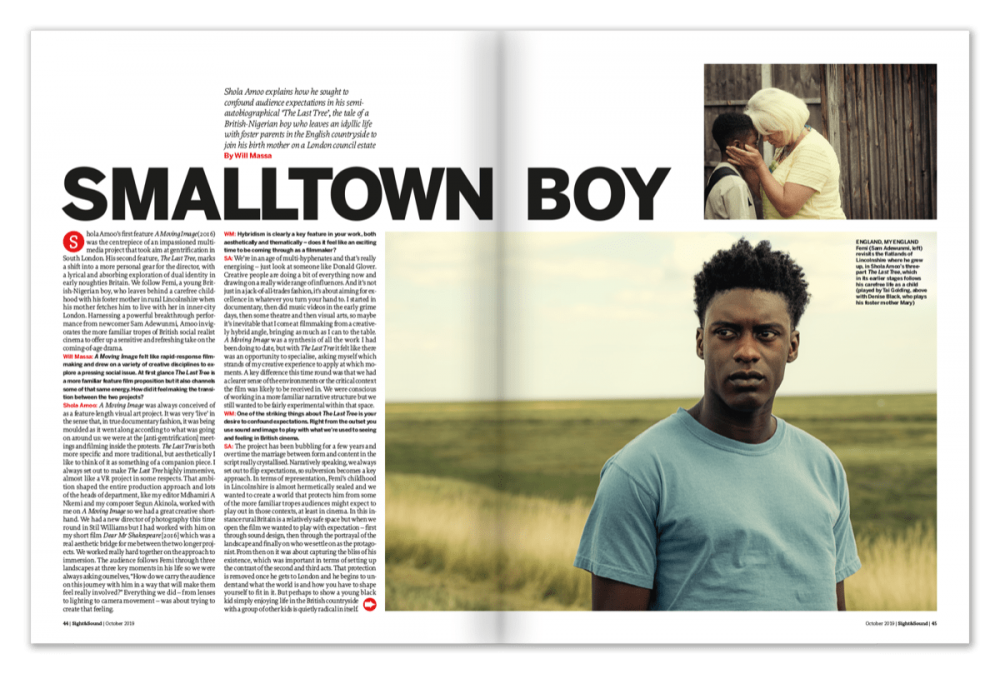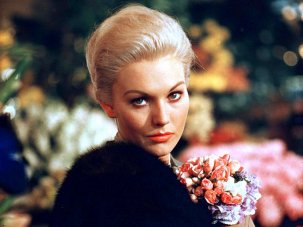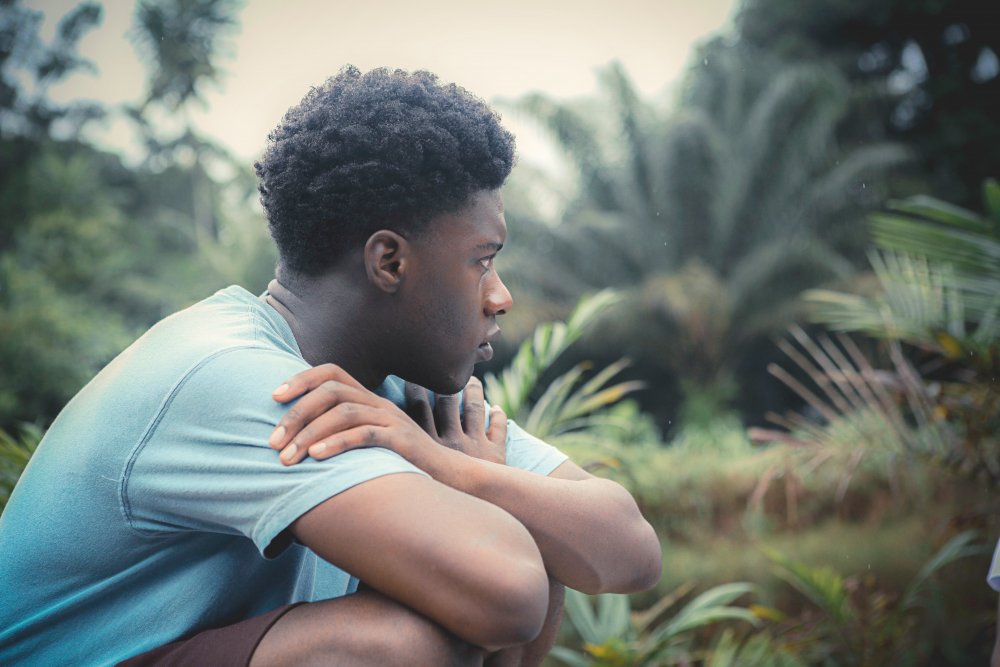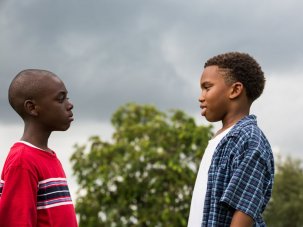Despite its early-2000s setting (when Brexit’s deafening arguments about what constitutes Britishness were faint rumbles), Shola Amoo’s lyrical coming-of-age drama wrestles with questions of belonging and identity in an indubitably timely fashion. His hero Femi is a child of two Britains and two mothers. Raised from a small child in rural freedom in Lincolnshire by his gentle white foster mother Mary, he’s destabilised by being dropped abruptly into life on a tough inner-London estate when his Nigerian mother Yinka reclaims him. It’s a partly autobiographical story, and the young Femi’s banked-up misery resonates with convincing touches.
UK 2019
Certificate 15 98m 42s
Director Shola Amoo
Cast
Femi Sam Adewunmi
Yinka Gbemisola Ikumelo
Denise Black Mary
younger Femi Tai Golding
Mr Williams Nicholas Pinnock
UK release date 27 September 2019
Distributor Picturehouse Entertainment
thelasttree.film
► Trailer
Tai Golding’s still and wary performance as the younger Femi keenly conveys a child emotionally dislocated by being surrendered by the only mother he’s known into Yinka’s strict Nigerian care. Mothering and its inevitable failings form one of the film’s central themes, as Yinka’s beatings and perennial despair at his behaviour leave Femi emotionally shut down and resentful of Mary’s perceived betrayal. His sharp first-person perspective shapes the film, a subjective portrait often delivered, in its urban sections, in unsettling low-angled close-ups on its hero, Spike Lee-style.
It’s a film whose surroundings vibrate in tune with its emotional mood. Thus Femi’s South London is a grim, grey enclave of brutal tower blocks, Amoo and DP Stil Williams giving it a very different look from the vibrant, gentrification-defying Brixton of Amoo’s first feature, 2016’s A Moving Image. Femi’s tough inner-city school is riven with acutely observed ethnic fault lines and the ‘colourism’ that gets Nigerian classmate Tope taunted for her dark skin by a black British pupil.
So by the time we find Femi again at 16, now played by a brooding Sam Adewunmi, he’s grown a carapace of hard-man masculinity. Listening secretly to The Cure while telling friends it’s Tupac, he’s learned to hide his soft underbelly.
Writer-director Amoo’s plot takes on a generic gang-tale feel, however, as Femi is recruited by local gangster Mace (Demmy Ladipo). From early on, we understand that violence, from Yinka’s canings to the ‘punishment beatings’ he metes out on Mace’s behalf, is the price Femi pays for adult attention.
Despite this, the film opts to show him dabbling rather than diving into lawlessness – shoplifting, enforcing Mace’s beatings, acting as a bemused lookout during a violent crime – which is a useful reminder that teenage life is mutable. Not every ‘lieutenant’ inevitably opts to stay with the gang. Nonetheless, it gives the plotting an oddly uncommitted air.
This limited jeopardy makes the story less tense and jolting than, say, the rather edgier My Brother the Devil (2012) or TV’s gritty, melancholy Top Boy (2011). It also shows up the muzzy, one-note characterisation of almost all the people around the teenage Femi, who’s played with sensitivity and swagger by Adewunmi. With the exception of Gbemisola Ikumelo’s stubborn Yinka, they’re there solely to service the hero’s story, with little for the actors to work with. Nicholas Pinnock’s briefly glimpsed saviour teacher Mr Williams seems inserted purely to head Femi off a path that leads only to the jail yard or the graveyard. A cursory sliver of romance with the cagey Tope (Ruthxjiah Bellenea) climaxes in a scene whose slo-mo extreme subjectivity makes it hard to gauge whether their public kiss is a breakthrough or a fantasy.
Even though Amoo’s interest is in arthouse feels rather than genre thrills, his narrative sometimes seems disjointed, its concentration displaced into visual flourishes. Spanning Lincolnshire, London and (for a tantalisingly brief period) Lagos, the film differentiates each setting with a distinctive visual and sonic signature. Golden light, saturated colours and lush orchestration wrap around Femi’s childhood rural idyll, while Mace’s bolthole pulses with red light in the grey bulwark of a council estate. Lagos buzzes with city chaos, then the moneyed stillness of Femi’s biological father’s vast house.
There’s a strong Moonlight vibe about much of this, though Amoo’s 2013 sci-fi short Touch, where golden fields are similarly a joyous space for his characters, suggests it’s also his own rapidly developing visual style. The up-close sound design – wind in the trees, sudden breaths, the blood beating in Femi’s ears – puts the viewer almost inside his head. But the film doesn’t deliver the immersive experience of a brutalising childhood with the all-round originality that Jeremiah Zagar’s recent We the Animals musters.
When Femi surfaces in Lagos, brought back in search of his Nigerian roots and absent father, each ravishing-looking scene is more elliptical than the last. All that we can see, as he romps alone on the shoreline like Antoine Doinel in The 400 Blows (1959), is that he’s at last able to carve his own path in life.
In the October 2019 issue of Sight & Sound

Smalltown boy
Shola Amoo explains how he sought to confound audience expectations in his semiautobiographical The Last Tree, the tale of a British-Nigerian boy who leaves an idyllic life with foster parents in the English countryside to join his birth mother on a London council estate. By Will Massa.
→ Buy a print issue
→ Access the digital edition
→
-
The 100 Greatest Films of All Time 2012

In our biggest ever film critics’ poll, the list of best movies ever made has a new top film, ending the 50-year reign of Citizen Kane.
Wednesday 1 August 2012
-
The Digital Edition and Archive quick link
Log in here to your digital edition and archive subscription, take a look at the packages on offer and buy a subscription.







